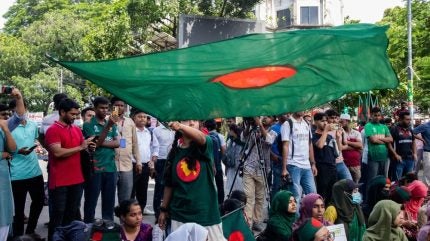
AHM Shafiquzzaman, secretary to the Ministry of Labour and Employment, recently shared with The Daily Star that the government is open to discussions on wage reviews for workers. He also welcomed tripartite consultations involving the government, factory owners, and labour unions.
Although the minimum wage was increased in November last year, the interim government’s decision to reassess wages comes as workers continue to struggle in the face of soaring inflation.
Investment Monitor understands that the government has also committed to ensuring that workers are paid their arrears soon and plans to improve communication between workers and officials from the ministry and the Department of Inspection for Factories and Establishments.
Additionally, in the meeting, it was also decided that the tripartite committee would be reformed to make labour-related complaint committees more effective, with hearings set to be held to address grievances.
Labour unrests are expected to be addressed as soon as possible through measures based on the information collected on a daily basis. The advisors to the interim government alleged that “certain groups are inciting workers with unreasonable demands to create unrest among both workers and factory owners.”
The Daily Star also reported that the government has taken steps to ensure workers at Beximco are paid, by lending the company a Tk70 crore ($5.86m) loan to facilitate the payment.
Reportedly, Shafiquzzaman will visit some industrial areas like Tongi to talk to workers and union leaders.
Meanwhile, Khandoker Rafiqul Islam, president of the Bangladesh Garment Manufacturers and Exporters Association (BGMEA) has claimed that around 60 out of 400 garment factories in Ashulia have been shut down due to the labour unrest. The BGMEA has reportedly held a meeting with workers’ representatives and local influential people in the Ashulia area to “convince workers to return to work.”
Additionally, approximately 200 factories have suspended production because of the political upheaval, with some factories reportedly laying off workers in response to the ongoing crisis.
Bangladesh saw the closure of 130 garment factories in the first week of September as worker protests for higher wages and back pay continued.
Recently, Mostafiz Uddin, managing director of Denim Expert Limited and founder of the Bangladesh Apparel Exchange (BAE), called for unity among stakeholders in the country’s garment sector, warning that internal disputes could harm the country’s global reputation and threaten its competitive position in the international market.



